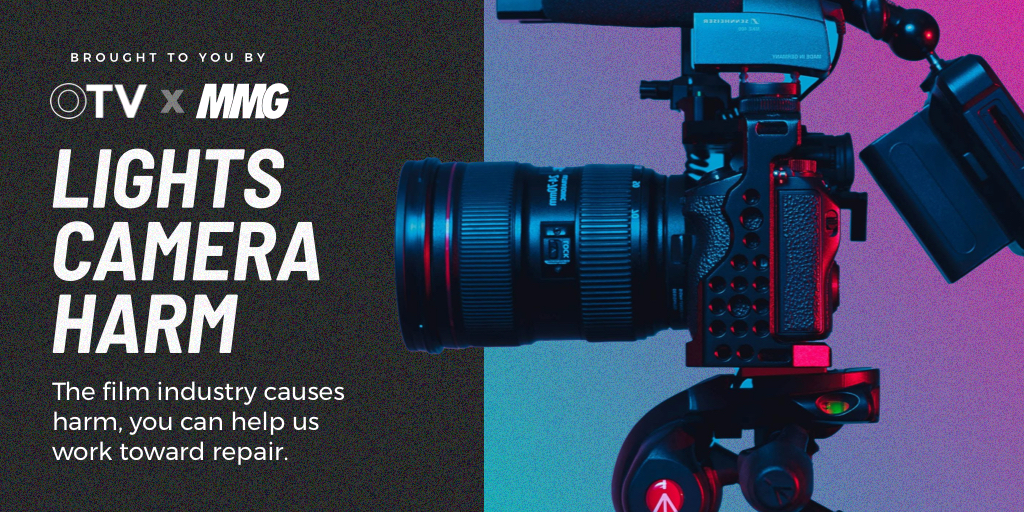Thank you for taking this survey.
Thank you for taking the time to complete our survey. You are helping us to gain a better understanding of the state of harm and repair in the film and television industry and more specifically helping us to develop restorative justice approaches in response to harm in performing arts communities.
This research is being led by OTV and MMG. OTV is a non-profit platform for intersectional series, pilots, and video art, supporting artists around the globe in producing and exhibiting independent media, film, and TV. Black and nonbinary-led, MMG is a global research and change management firm focused on developing systems that historically marginalized people can thrive within. This survey looks at differences in how artists of marginalized identities and backgrounds are experiencing production workplaces. Your answers will 1) help us discover and name common experiences of inequity in the film and TV industry and 2) help to ground our research in lived experiences like yours so that we can identify and share solutions in a public report.
Our focus is on experience with harm, hostility, and repair. We want to understand what creates harmful production cultures, amplifies power imbalances between artists, and leads to harmful interactions.
Your privacy is important to us. Your data will only be shared in an aggregated way. This survey is anonymous. We take special care to protect your identity and to remove any and all verifiable markers so as to protect your privacy. We store data in a way that limits internal and external access.
This survey will take about 20 minutes of your time. Please answer the questions with an open mind and select the answer that best reflects your experiences. We start with demographic questions, including caregiving responsibilities, then ask about identifying and stopping harm in production spaces. Please fill out every question, as your experiences are important to us and will make our data more accurate and complete. We ask that you set aside 30 minutes following this survey for aftercare. Conversations about hostility or otherwise harmful behaviors can be challenging. Once you complete this survey, you’ll find resources we’ve compiled for additional reading and grounding.
